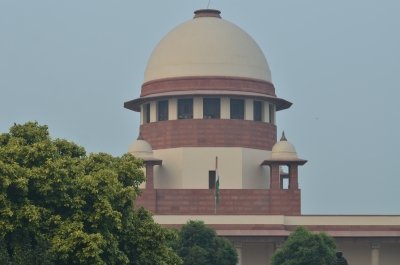
New Delhi, Aug 31 (IANS) A public interest litigation (PIL) has been filed before the Supreme Court seeking guidelines for lower courts to consider imposing higher fines in order to better achieve the punitive and deterrent objectives of criminal law.
As per the plea, fines prescribed under criminal sections are grossly inadequate in achieving their goals in the present scenario due to the significant depreciation of the rupee over the last many decades.
The PIL said that the Motor Vehicles Act has been amended twice in recent years, significantly increasing fines for various traffic offences — for example, Rs. 10,000 for drunk driving or for not possessing a Pollution Under Control (PUC) certificate.
“If one is breaking many traffic rules at a time, e.g. one is driving rashly after drinking and jumping a red signal or not possessing a pollution certificate, he may be fined for more than Rs 50,000! Such fines certainly have a deterrent effect on offenders,” the petition said.
It added that the fine under the criminal law has become “too little an amount” and imposing fines such as Rs 100 or Rs 500 is too little to make any meaningful impact.
The plea, filed by Sanjay Kulshresthra, the petitioner-in-person, said that the fine should be substantial enough to deter offenders or potential offenders from committing wrongful acts, and that the fine as a form of punishment must be capable of instilling a sense of “fear” in their minds.
Stating that fines are also failing as a means of compensating victims, the PIL referred to an example where the trial court imposed a “grossly insignificant” additional fine of Rs 5,000 on the convict as compensation for a six-year-old rape victim. It said that nominal fines of Rs 100, Rs 200, or Rs 500 do not meaningfully contribute to the government’s efforts in maintaining the judicial system.
For fines to serve this purpose, they must be quantifiable, otherwise, the goal becomes redundant, the plea added.
As per the causelist published on the website of the apex court, a Bench of Chief Justice of India (CJI) B.R. Gavai and Justice K. Vinod Chandran will take up the matter for hearing on Monday (September 1).
–IANS
pds/vd



